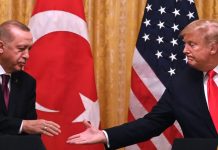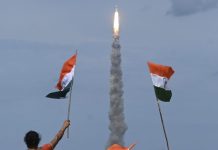Russian President Vladimir Putin and Pakistani PM Imran Khan may have their first-ever official meeting during the SCO summit in Bishkek, Kyrgyzstan. Experts state that Imran Khan – Vladimir Putin meeting should not be downplayed, but should also not expect unrealistic outcomes.
Pakistan Reportedly Closes 13 Terror Training Camps Near Jammu and Kashmir
Imran Khan-Vladimir Putin Meeting – A Monumental Event
A news outlet disclosed that the country’s foreign minister, minister of external affairs, and other officials will also attend the prospective meeting, suggesting that their Russian counterparts will probably be in attendance as well. In the run-up to this event, the prospects look very promising for taking Russian-Pakistani relations to the next level, though observers shouldn’t get their hopes up for unrealistic outcomes.
Tempering expectations
Such meetings are usually a formality for both leaders to get to know one another after the silent behind-the-scenes work of their diplomats and other members of their permanent bureaucracies (including military and intelligence officials) made the meeting possible. National leaders are so busy handling an ever-changing variety of affairs that they oftentimes don’t have the time to manage specific bilateral relations except in very special cases, such as Russia and Pakistan’s ties with their shared Chinese partner for example. It’s therefore unlikely that Putin and Imran played much of a hands-on role in their countries’ bilateral ties with each other up until this point.
Talking business
That might soon change after their upcoming meeting, however, since it’s very possible that the two great powers will discuss the most important items on their shared agenda. Russia signed a memorandum of understanding (MOU) with Pakistan last year to explore the possibility of building a $10 billion gas pipeline, and the influential Moscow-based Centre for Analysis of Strategies and Technologies (CAST) estimated in their recently released book, Pakistan: Beyond Stereotypes, that the South Asian state could potentially buy upwards of $9 billion in military equipment from Russia in the future. On top of that, Russia and Pakistan have synchronised their approaches to the Afghan peace process and each now has extremely close political ties with the Taliban, especially after Islamabad facilitated Moscow’s hosting of the group several times over the past year.
Symbolism before substance
These three topics — the $10 billion energy MOU, the possibility of up to $9 billion in arms sales, and the Taliban-led Afghan peace process that they both support — are most likely to be discussed during Putin and Imran’s first ever meeting, but whatever they might agree upon in these respects will probably remain unknown to the general public for now. Therefore, observers can probably expect a lot of symbolism and extremely promising statements about the future of bilateral relations but little else at this point, except of course for Imran to invite Putin to Pakistan like has been previously reported.
Context is everything
The geostrategic context of the invitation increases the odds that it would be accepted, especially if the two leaders ultimately clinch a significant enough deal with one another to warrant Putin’s time in becoming the first Russian leader to ever visit Pakistan. His country is engaged in a fast-moving “Return to South Asia,” and Pakistan is veritably the global pivot state of the emerging multipolar world order, so there are already enough reasons as it is for him to accept the invitation and visit Russia’s new strategic partner, but the Indian factor looms large over their bilateral relations even though the intensification of ties between Moscow and Islamabad isn’t aimed against any third party.
India’s failed influence operation
It shouldn’t be forgotten that India has many powerful agents of influence within the Russian government and its policy-making circles who have been in overdrive these past few months doing all that they can to scuttle the Russian-Pakistani strategic partnership and prevent Putin from visiting the global pivot state, though to the Russian leader’s credit and that of his inner circle, they’ve remained impervious to these ever-hysterical efforts and have confidently continued pioneering a new era of relations with Islamabad. Still, there are serious sensitivities inherent to his possible visit to Pakistan, which is why he’d probably have to do it either immediately before or after visiting India during the same trip in order to keep up his country’s “balancing” act.
Bye-bye to “Rusi-Hindi bhai bhai”?
The only possible scenario in which Putin would visit Pakistan without making a stop in India right before or after is if New Delhi ditches Moscow like it recently did Tehran and pulls out of the S-400 deal under American pressure in order to avoid the Countering America’s Adversaries Through Sanctions Act (CAATSA). In exchange, India would receive Terminal High Altitude Area Defense (THAAD) missiles and even F-35s, with the second-mentioned item only being reported this weekend as an unexpected add-on designed to make Donald Trump’s offer all the more enticing to Narendra Modi. The US and India are military-strategic partners nowadays and New Delhi can’t afford to be punished by Washington like Ankara is about to be if it wants the Pentagon’s support in “containing” China, so Modi is more than likely to bend under Trump’s pressure.
Concluding thoughts
In any case, the upcoming meeting between Putin and Imran will open up a new era of relations between these two great powers and greatly increase the odds that the Russian leader will eventually make history by being the first one to visit Pakistan if he accepts the reported invitation to do so. Nevertheless, his prospective visit wouldn’t just be for the sake of it but to sign a significant energy, arms, and/or peace deal that would make it worth his while to take time out of his busy schedule to travel all the way out there. Even so, however, this first-ever meeting is extremely important for the positive signals that it sends and the long-term strategic intent that it strongly implies.
This post originally appeared here.




